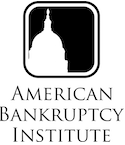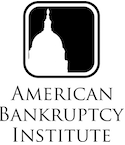Intangible assets have been among the last class of assets to garner respect in bankruptcy proceedings. Until recently, trademarks, patents and know-how have withered on the vine as bankruptcy professionals (financial advisors, restructuring professionals and attorneys) have focused on other areas to maximize value and achieve a timely outcome.
Sites Committee
Committees
ABI is pleased to announce your 2008-2009 co-chairs, as well as the addition of five new leadership positions. These new positions are a result of your feedback regarding opportunities for involvement and advancement in the association. The first position is that of the Education Director, who will assist the chairs in coordi
The sale of all or substantially all of the assets of a business pursuant to §363 (363 sale) of the Code in a chapter 11 case has become more commonplace in recent years as acquirors seek to purchase target businesses in an accelerated manner while shedding many of those businesses’ liabilities.
ABI is pleased to announce your 2008-2009 co-chairs, as well as the addition of five new leadership positions. These new positions are a result of your feedback r
On April 29, 2008, the Second Circuit Court of Appeals in In re The Penn Traffic Co., 2008 WL 1885328, held that under Bankruptcy Code §365, a nondebtor party to a contract that is executory at the time a bankruptcy case is commenced cannot, by post-petition tender or performance of its own outstanding obligations under the contract, deprive the debtor party of
Constructive trusts are creations of state law. However, some bankruptcy courts have exercised their equitable powers to impose constructive trusts on estate assets. Other bankruptcy courts have concluded that the notion of constructive trusts is at odds with the goals of the Bankruptcy Code.
A debtor's proposed chapter 13 plan may not be confirmed if a trustee or the holder of an unsecured claim objects thereto unless a debtor pays in full each allowed
The sale of all or substantially all of the assets of a business pursuant to §363 (363 sale) of the Code in a chapter 11 case has become more commonplace in recent years as acquirors seek to purchase target businesses in an accelerated manner while shedding many of those businesses’ liabilities.
Net neutrality is a term coined by the telecommunications industry to refer to the use of the Internet in delivering a variety of communications media such as voice (VoIP), video and music. The FCC is poised to determine (or not determine) the regulatory treatment of the Internet in a variety of pending proposed rulemaking and forbearance dockets.
Internet special interests like Google, eBay, Amazon and Moveon.org are lobbying hard for new utility-like regulation of broadband competitors called “net neutrality.” Fearing hypothetical discrimination, net neutrality regulation proponents want government to preemptively mandate a one-tier Internet where all Internet traffic would be treated equally.


![Photo of Jay Teitelbaum [1]](https://abi-org-corp.s3.amazonaws.com/committee/Authors/ABICommitteeLogo_183.png)




